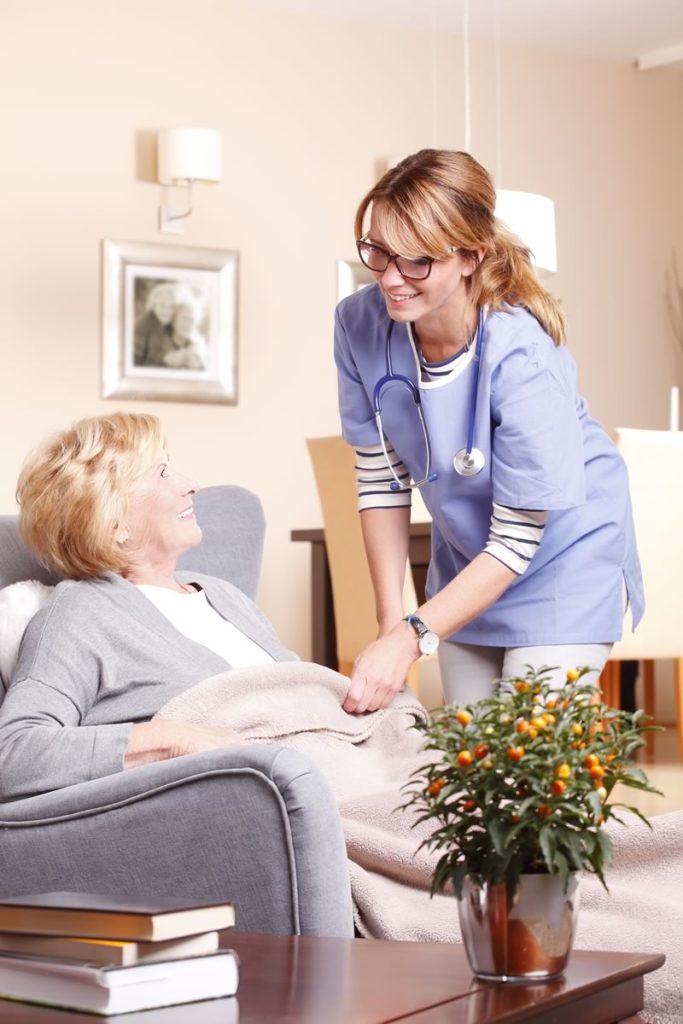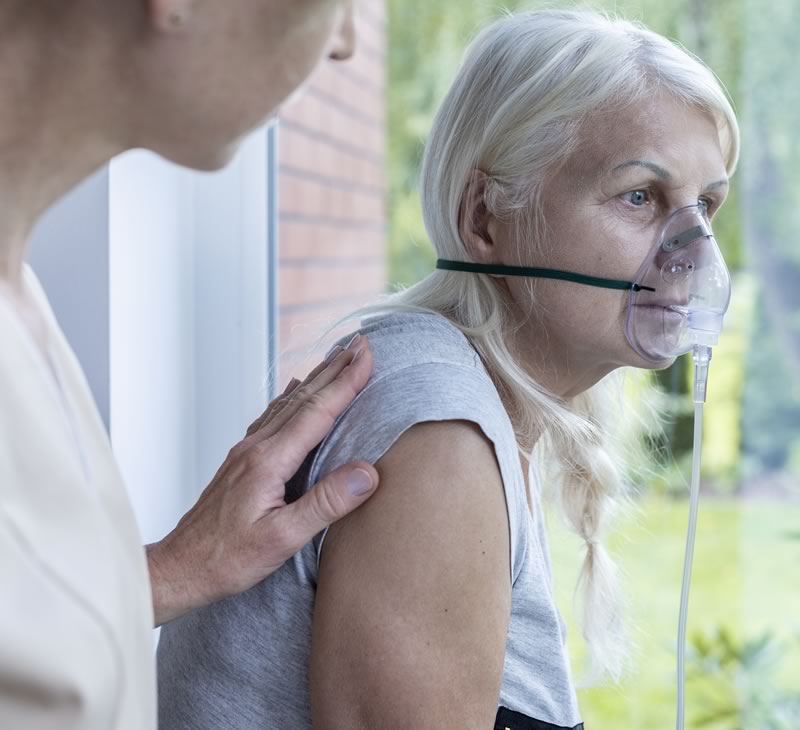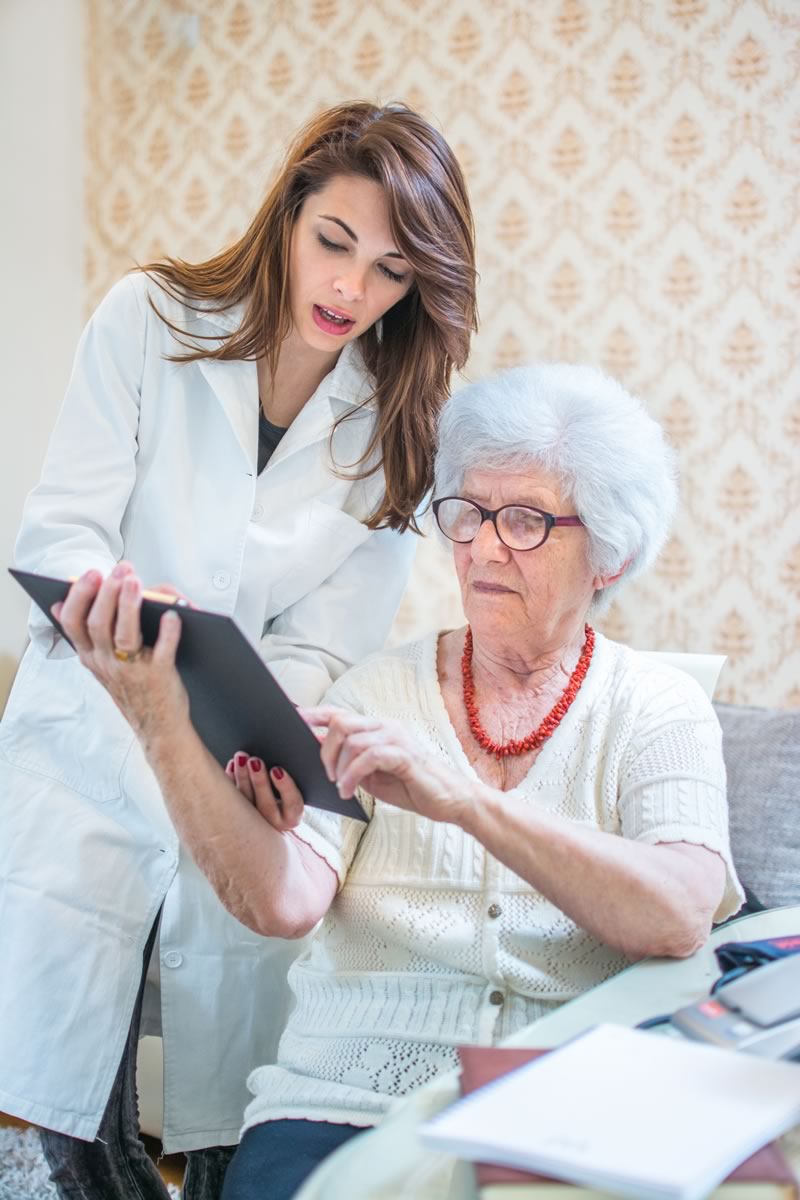Statistics show that the elderly population of New York state has grown by over 26%. This makes for the highest numbers of residents over the age of 65 at any point in the state’s history. Across the boroughs of New York City, 237.478 over-65s were added to the population between 2007 and 2017 – double the growth of the under-65s in the city. Following the increase in the aged population, there has also been a rise in demand for specialized care for the elderly.
Not all people over the age of 65 will require special care, of course. However, many from this group will at some point require aid. As the total aged population grows, so does the portion of it that requires medical care and general living assistance. Elderly care services of all varieties, from retirement homes to specialized hospitals and home care providers, are all on the rise in the city in order to meet the growing demand. This means that older people and their families have more options to choose from. Supply does not quite meet demand, however, especially when it comes to retirement communities and frail-care facilities. Families are also increasingly seeking alternatives to in-hospital care for their older relatives. A better option is one that enables elderly people to remain in their homes, aided by dedicated caregivers. This niche service is the specialty of Tri-Med Home Services.
Elderly Home Care and Home Health Care Services

What Are Home Care Services?
Home Care Services, as outlined above, enable a person with special needs to stay in their homes rather than having to take up residence in a hospital or other care facility. When we speak of home care services, we don’t necessarily include medical care under that description. Rather, the term refers to personal care, such as help with dressing and bathing; cleaning, laundry and yard work; the provision of meals as well as general human interaction and company.
What Are Home Health Care Services?
Home care services may either incorporate health services or these may be provided separately. Health care services are those that are specifically directed towards the medical and physical wellbeing of the elderly person. Health care services include such things as occupational and physical therapy and personalized nursing.
What Is the Difference Between Home Care and Home Health Care?
From the descriptions above, the distinction between home care and home health care should be clear. To summarize:
Home Care
This type of care is provided by dedicated home care aides who are not necessarily medically trained and who are tasked with aiding seniors in their activities of daily living. These services should be called for in the following circumstances:
-
- When seniors need help with their daily activities (from grooming and dressing to cooking),
- When seniors are not able to get around, and
- When seniors are at risk of social isolation
Health insurance generally does not cover these services, except in the case of qualified, low-income seniors. Long-term care insurance plans are available, however.
Home Health Care
This is a specialized, clinical medical care service, which is provided by a registered medical practitioner, usually a nurse or home health aide (HHA). Home health care is called for in the following circumstances:
- after an operation,
- To provide therapy in order to restore full function in some area of the senior’s life, and/or
- When medication needs to be administered.
Home health care is generally covered by Medicare when prescribed by a physician.
In short, home care pertains to domestic activities and general daily functions, while home health care is oriented specifically towards the medical aspects of an elderly person’s welfare.

What Is a Home Health Aide?
While registered nurses are often enlisted to take charge of a senior’s home health care, it is more usual for a home health aide (HHA) to be the one who works full-time with the patient. They will generally take care of the home and basic health care functions, usually under the supervision of a nurse or doctor, who then checks in with the HHA and patient on a regular basis.
HHAs will have received the same basic training and will, therefore, carry out many of the same tasks as registered nurses (RN) and licensed practical nurses (LPN), however, they will not have gone through the complete certification process. They are thus able to provide the same basic health care services as a nurse, but it will usually be done under the supervision of an RN or LPN.
When an HHA takes on a senior patient, he/she is primarily responsible for tracking the patient’s progress and alerting a nurse or doctor in the event of any problems. They carry out tasks such as monitoring the patient’s vitals (such as temperature, pulse, blood pressure, and the like), administering medication, changing dressings and bandages, and helping with wheelchairs, and other mobility aids. In carrying out their tasks, HHAs will also be responsible for basic home care, as well as providing company for these elderly patients, who, all too often, would otherwise be alone for the majority of their days.
The time they spend with a patient differs depending on the patient’s needs that are involved. They may take up residence in a patient’s home for certain periods or they may do rounds and attend several homes a day or week, staying for a few hours with each patient.
Are In-Home Care / Home Health Care Services for you?
If you, or someone close to you, are among the many senior citizens in need of care, you’re probably weighing up some options. Could home care be a good option? You should consider home care if one or more of the following applies:
- You’re no longer mobile, having, either temporarily or permanently, lost the ability to drive or walk.
- You have wounds that need regular cleaning.
- You have medication that needs to be administered to you regularly, particularly if these are in the form of injections.
- You are unable to bathe, dress or prepare meals without aid.
- You are in the final stages of an incurable disease, and medical as well as emotional support are necessary.
What Home Care Services Are Covered by Medicare
Medicare will cover a range of home health care services, with a number of limitations and provisos.
Firstly, general home care services such as meal preparation or delivery, 24-hour care, cleaning, and custodial care, will not be covered.
On the other hand, the majority of the functions of home health care will be paid for by Medicare. These include part-time care by a nursing professional such as an RN, physical therapy, occupational therapy, speech-language pathology services, medical social services, and part-time HHA services.
To qualify for these benefits, a patient needs to comply with the following:
- He/she must have either Hospital Insurance or Medical Insurance cover, and
- He/she must be receiving a program of care that is designed, prescribed, and monitored by a doctor.
When it comes to specific treatments such as physical therapy and occupational therapy, the cover will be granted only if the treatment in question complies with the following:
- It must be recommended for your condition by medical best practice,
- It must be carried out by registered professionals,
- The doctor who prescribes the treatment must be convinced that it is expected to bring significant improvement in your condition,
- The home health agency that takes on your care must also be Medicare certified,
- The doctor also needs to certify that you are home-bound, and need only part-time care. Full-time care will not be covered.

Benefits of Employing Home Health Care Services
Home health care comes with a variety of benefits for seniors:
- Nursing care and rehabilitative therapies can be carried out in the comfort of your own home.
- HHAs receive specialized training for dealing with seniors; caregivers working in the more generalized patient environment of hospitals may not necessarily have this training.
- You may well need modifications to your home to facilitate your care, recovery, and future comfort. Home health care service providers can advise you on these and assist you with them.
- It alleviates the burden on family caretakers.
- Patients seem to be happier and recover more quickly.
- With an HHA, additional home care services are also available, such as food preparation and cleaning, removing any stresses around domestic needs and personal care.
- Perhaps most importantly, the cost of home health care is much lower than that of in-patient hospital visits.
- The need for hospital visits can be eliminated or at least heavily curtailed.
Limitations of Home Care / House Calls
There are some limitations to home health care. The following deserve mentioning:
- It is not really favorable in situations where the patient needs more frequent care and monitoring. So, if 24-hour care is needed, a hospital is still the best option. Except in those instances in which private-paying clients can afford to contract the full-time services of an HHA, caregivers are only able to visit the home for a few hours each day. The patient thus needs to be able to be relatively self-reliant for some functions, or able to depend on family for the rest of the time.
- Home care often also requires some additions and modifications to the home. Medical equipment, stairlifts, wheelchairs, and other mobility aids, would all need to be accommodated in the home, which can incur additional costs. These are usually indispensable to home care efforts.
Advanced Home Care Services for Your Loved One from Tri-Med Home Care Services, Inc.
Tri-Med Home Care Services, Inc. is a dedicated senior home care provider that serves New York City, Nassau, and Suffolk counties as well as the Bronx. We offer advanced home care services, including the following:
- Home Care:
All of your domestic needs are comprehensively catered for, removing this burden during the period of rehabilitation, immobility and/or recovery. This may include meal preparation, bathing and dressing assistance, mobility assistance, and light housekeeping. - Home Health Aide:
As already mentioned, HHAs are trained to deal with the specific medical needs of senior patients. They are equipped to deal with patients who are in a very frail physical condition or who have symptoms of dementia or Alzheimer’s. They can also manage chronic conditions such as high blood pressure or emphysema. Our HHAs can provide complete peace of mind for both the patient and their family. - RN/LPN:
Our highly-qualified nurses provide complete care through the administration of the prescribed treatments and the provision of advice and comfort to their senior patients. -
Specialized Therapies:
We also have an extensive network of occupational therapists, physical therapists, speech pathologists, and respiratory therapists to provide the necessary rehabilitation after an operation or as required by the patient’s particular medical condition. - Nutrition Assistance:
Our expert nutritionists devise special, personalized diets for patients on the basis of their specific conditions and health status. Nutrient-dense diets that effectively fight disease are formulated by our nutritionists and passed on to the patients’ caregivers as guidelines for daily meal preparations. -
Social Workers, Companion Care:
Emotional care is just as important as physical, and this is the domain of our social workers and companion carers. Social workers provide emotional support and guidance as the patient deals with their treatment, symptoms, pain, and frailty as well as the generalities of the aging process. Companions offer much-needed company to seniors who are at risk of social isolation. It could just be spending a few hours talking, playing a board game, reading aloud or watching a favorite TV show. - Full-Time, Live-In Care:
Full-time, live-in care, which often incorporates a combination of the above services, is also available, with HHAs taking up residence in the patient’s home for a specified period of time to monitor and treat the patient, and to provide company.
We tailor our service solutions to the specific needs of each client. Each case will require certain combinations of our services for the most successful care, and we are able to adapt and personalize our approach.

These Are the Questions to Ask Your Home Care Provider to Ensure Quality Care:
Engaging a home care service provider is something that should be done with great care and selectivity. Trust is the most important factor, as you will be handling your loved one’s care – and opening their home – to strangers. In order to make sure that you are hiring the right people, here are the questions you need to ask:
- How long has the service provider been in existence?
- Is it an approved Medicare provider?
- Has the provider’s quality of care been certified by a national accrediting body, such as the Joint Commission for the Accreditation of Healthcare Organizations?
- Does the provider have a current license?
- Does the agency clearly list the rights of patients and their families for concerned persons to read and understand?
- How closely do supervisors watch and monitor each case being dealt with by their staff?
- Does the agency have a nursing supervisor on call 24 hours a day?
- Will the service provider give references for its caregivers, in other words, people who can be contacted independently to attest to the quality of care?
- Does the service provider ensure patient confidentiality?
- How are caregivers trained, certified, and hired?
- How stringent is the screening process?
- When problems arise, how are they dealt with?
- Who can be contacted if there is a disagreement with a caregiver, for example?
- Does the service provider set up a treatment plan? And, how often is it adjusted?
